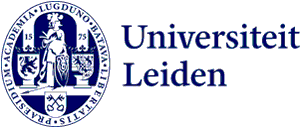
Carmen Van den Bergh on her nomination for the LUS Teaching Prize: ‘It’s an encouragement to further develop passion for literature and education’
Assistant professor Carmen Van den Bergh has been nominated for the Leiden University Teaching Prize. ‘I combine literature education with social relevance and personal experience.’
How do you feel about being nominated?
‘In all honesty, I didn't expect to be nominated. When I heard about it, I was completely speechless. The idea that students took the trouble to nominate my teaching for this award fills me with a deep sense of gratitude. I don't know exactly what motivated them to nominate me; we'll find out soon. But if I may express one hope, I hope it has to do with sparking their curiosity for literature. If that's the case, it’s the best compliment I could receive.’
What does good teaching mean to you?
‘For me, good teaching is always a shared journey. I believe strongly in the idea of a learning community: students learn from the teacher, the teacher learns from students, and students learn from each other. That interaction fosters depth and curiosity.
‘My conviction stems from an experience that has always stayed with me, with one of my favourite teachers who really knew how to open up a dialogue. He divided us as students into two camps to discuss ethical issues. It taught me never to take a point of view for granted and always to explore other perspectives.
‘I now apply this method myself, for example when discussing Michela Murgia's novel Acabadora, about euthanasia. Personal stories often come up in such conversations: one student told us that a loved one had committed euthanasia. A group of international students were then surprised to hear how Switzerland has a legal framework for euthanasia, while in Italy it often remains taboo and in the Netherlands it is discussed much more openly. By having that conversation with the students beforehand, they read Murgia's book with a different perspective—with an open mind, more receptively, and therefore with greater depth.’
What makes your teaching distinctive?
‘I think my teaching stands out because I combine literature with social relevance and personal experience. I try to make complex literary or historical themes clear and concrete, often with the help of film clips, music lyrics, or current examples from everyday life.
‘On the other hand, I think it's important to occasionally close all the laptops, open a book, read an excerpt together in silence, and discuss it. At moments like these, something special happens: students connect not only with the text, but also with each other. Sometimes there are even tears—and I consider that a positive thing. It means that the students have really understood the text, not just the Italian language and grammar, but also the message it conveys.
‘We recently discussed the lyrics to the song Coraline by the popular band Måneskin. It’s written like a fairy tale, but touches on difficult themes such as fear and depression. The lyrics struck a chord with many students, who recognised themselves or loved ones in certain verses. For me, this shows how literature can touch us at our core: it opens up a conversation about love, power, loss, and hope —themes that play a role not only in Italian culture, but in every life.’
What would you like to do in the future in the field of education?
‘In the future, I want to connect my teaching even more closely with society outside the university. I am a natural bridge builder, someone who likes to explore the boundaries between departments, schools, and libraries. A number of projects are already underway: through the Italian Queers project (JEDI fund), I bring songs and poems by queer authors into my lectures, through the Teach-IT project, Italian is offered in Leiden's plus classes (in collaboration with ICLON and the Science Hub), through the AmorRoma project (MAECI), students are prepared for their trip to Rome, and with my recent NWO project and a LUCDH grant, I am experimenting with AI tools in literary archives.
‘What I still dream of is bringing literature closer to young people who don't naturally come into contact with it. Research shows that reading is often socially inherited—children of parents who read are more likely to read themselves. For others, literature can feel like something elitist, something difficult. And that's a shame, because stories are for everyone.
‘I was lucky as a child. We always had lots of books at home and I would sleep with stories in two languages. My parents also made music together – my father sought out rhythms and sounds, and my mother gave them a voice with Italian words. That small gesture made a world of difference: it taught me not only a language and a culture, but also how to dream and deal with fears.
‘Not every child is lucky enough to have stories read to them. Not every child has access to literature. That is precisely why I want to make literature accessible to them through projects. Bringing them stories, letting them experience that they are seen and heard – that would be the most wonderful expansion of my education.’
Is there anything else you would like to add?
‘Yes, above all my thanks. I am grateful to my students for their curiosity and critical eye, which keep me on my toes every day and teach me things as well. I am grateful to my colleagues for their cooperation and support, and to the university for making all this possible. And I am enormously grateful to the jury and the LUS for the careful and intensive work that went into this selection process.’
